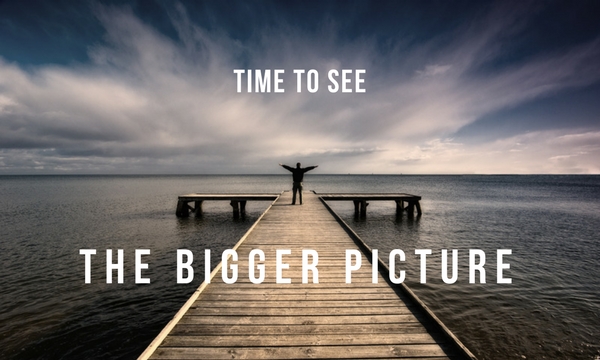
PERILS OF SHORT-TERM THINKING
Humans sit at the apex of the evolutionary tree with the most complex brain of any animal, yet some believe that there is a design fault. Our brains have evolved to respond to immediate threats, so we are not wired to detect more gradual warning signs. That’s why we can duck out of the way of a cricket ball in a fraction of a second, but fail to react to repeated and serious threat assessments about a deadly new virus for which there is no treatment.
In the early phases of human existence, our ancestors faced an onslaught of daily challenges to their survival – from predators to natural disasters. Too much information can confuse our brains, leading us to inaction or poor choices and this can place us in harm’s way. Consequently, our brains evolved to filter information rapidly and focus on what is most immediately essential to our survival.
Daniel Gilbert, a professor of psychology at Harvard University, argues that threats that develop over decades – rather than seconds – circumvent our brain’s alarm system. To illustrate, he says that we take alarm at terrorism, but much less to global warming, even though the odds of a disgruntled shoe bomber attacking our plane are, he claims, far longer than the chances of the ocean swallowing parts of Manhattan.
Assessing and reacting to risk is one of the most important things we do as humans. Nonetheless, as Professor Gilbert points out, in our short-sighted world we don’t perceive long-term challenges which threaten our existence, which is why he asserts that:
… if alien scientists were trying to design something to exterminate our race, they would know that the best offense is one that does not trigger any defense. And so, they would never send little green men in spaceships. Instead, they would invent climate change, which produces apathy not action (bold text added).
“Humans are very bad at understanding statistical trends and long-term changes,” notes political psychologist, Conor Seyle. “We have evolved to pay attention to immediate threats. We overestimate threats that are less likely but easier to remember, like terrorism, and underestimate more complex threats, like climate change.”
Right now, humanity faces a number of risks, but they are not on our collective radar as they will not impact us for a long time – decades and longer. Some of these risks are called existential risks as they have the capacity to wipe out humanity. For instance, in about a billion years – give or take a few hundred million years – the increased brightness of the Sun will doom the Earth’s biosphere.
In the more immediate future – say, the next century – the greatest threat to humanity is ourselves. More specifically, according to an article published by online media outlet Quartz, the most dangerous threat to humanity is the human mind.
The defining characteristic of humans is our capacity for complex thinking and advanced reasoning. These abilities have allowed us to develop innovations that transform our lives and our world … (but these) … innovations have also created new problems, many of which threaten our existence .… Climate change, pollution, economic and social disruption due to emerging technologies, political polarization, misinformation, inequality, and large-scale conflict are all major challenges for humanity to overcome that have arisen from our own innovation.
We are unlikely to effectively solve these problems unless we truly understand their ultimate source: the human mind. In line with this thinking, the Centre for the Study of Existential Risk at the University of Cambridge believes that the four greatest threats to the human species are all man-made – artificial intelligence, global warming, nuclear war, and rogue biotechnology.
In his bestselling book, Sapiens: A Brief History of Humankind, historian and renowned author, Professor Yuval Noah Harari, states that humans “… have the dubious distinction of being the deadliest species in the annals of biology”. We are the most advanced and most destructive animal to have ever lived – making us brilliant and deadly. This lethal combination causes some to proffer that a man-made global pandemic should be added to the list of threats to humanity.
Experience has taught me that it would be wise to further augment the list with unknown unknows. We humans are sometimes too clever by half in believing that we have covered all bases. In reality, no one can say with absolute certainty that there is not an unknown threat lurking around the corner which will take us by surprise. Consequently, the greatest risks in the years ahead may come not from threats we’ve identified, but from those we haven’t.
It’s clear that our short–term brains can’t cope with long–term perils. We are focussed on the here and now to the detriment of distant risks. Our inability to look beyond the current news cycle is reflected in a phenomenon called short-termism – the constant pressure to deliver instant results.
Short-termism has become endemic in society, and it pervades all aspects of our lives. We want quick-fix surgery to rectify imperfections IMMEDIATELY. We crave crash diets to lose weight FAST. We consume energy drinks to heighten alertness NOW. We expect politicians to respond to tracking polls TODAY. And we require companies to achieve a turnaround in earnings PROMPTLY.
In an article titled – The perils of short-termism: Civilisation’s greatest threat – BBC journalist, Richard Fisher, paraphrases angel investor Esther Dyson: in politics the dominant time frame is a term of office, in fashion and culture it’s a season, for corporations it’s a quarter, on the Internet it’s minutes, and on the financial markets mere milliseconds.
The world is plagued by short-termism and our challenge is to look at things through a longer lens. Perhaps we should remember that when we feel like shrieking in anger at the need to don a face mask during a pandemic while ignoring the long-term benefits to humanity of controlling a deadly virus.
COVID-19 is the latest example of long-term success being held hostage to short-term thinking. The pandemic influenced many people to focus on short-term outcomes and instant gratification. Cleary, we need to reframe our thinking and develop a longer game plan for society.
It’s time for humanity to see the bigger picture.
Regards
Paul J. Thomas
Chief Executive Officer
Ductus Consulting


Independence, curiosity and resilience are key to long-term thinking. We have to be willing to do hard and ungratifying things today so that we can enjoy exponential results in the future. Most successful people are almost always long–term oriented. Our education system needs to teach children how to set long-term goals and the benefits that come with long-term planning. Thanks Paul – today’s blog is a wake-up call for all of us.